As a business manager, I often ask myself where to buy a display case that balances quality and price. I need a product that looks great, lasts long, and doesn’t ruin my budget. Over the years, I’ve found reliable ways to source store fixtures. Let me guide you. Buy a display case directly from manufacturers like Fairwill Display for factory pricing, E1-grade boards, and global B2B shipping.
Table of Contents
ToggleUnderstand What Type of Display Case You Need
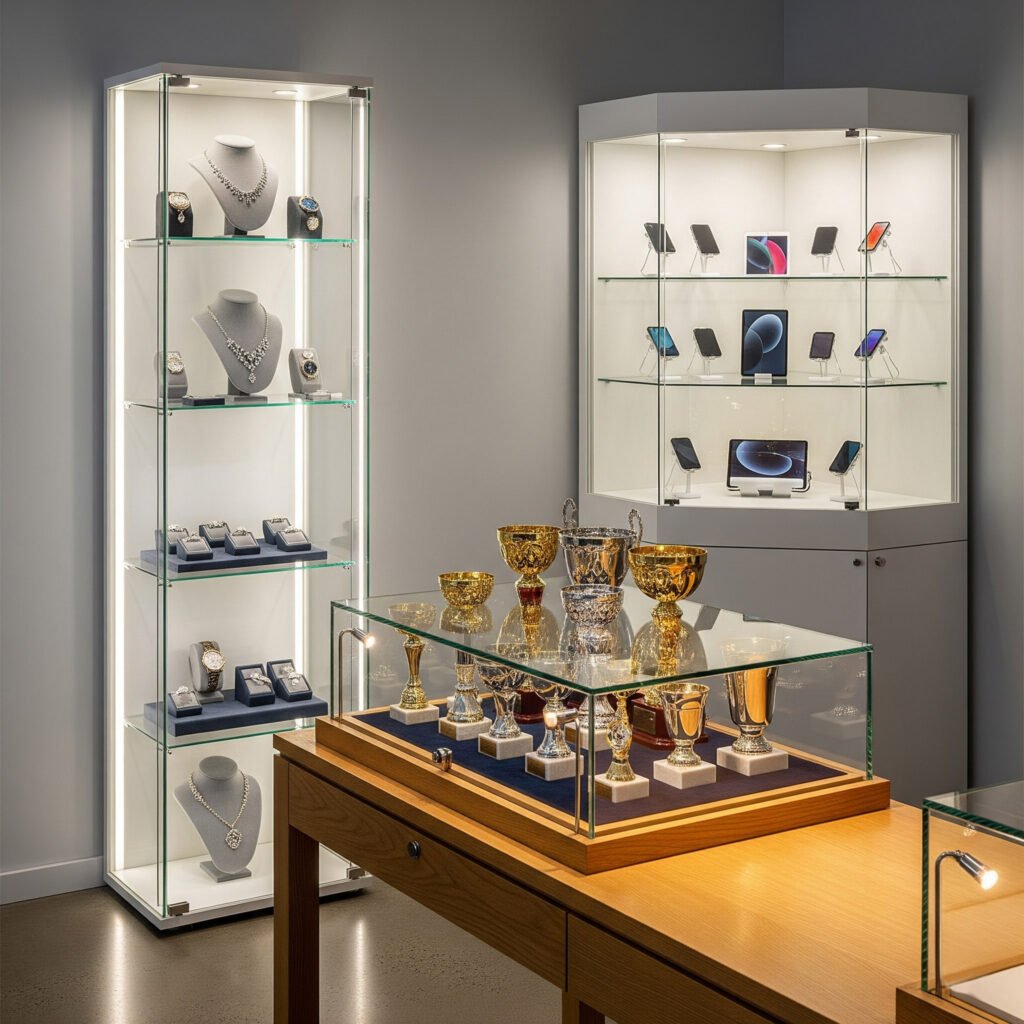
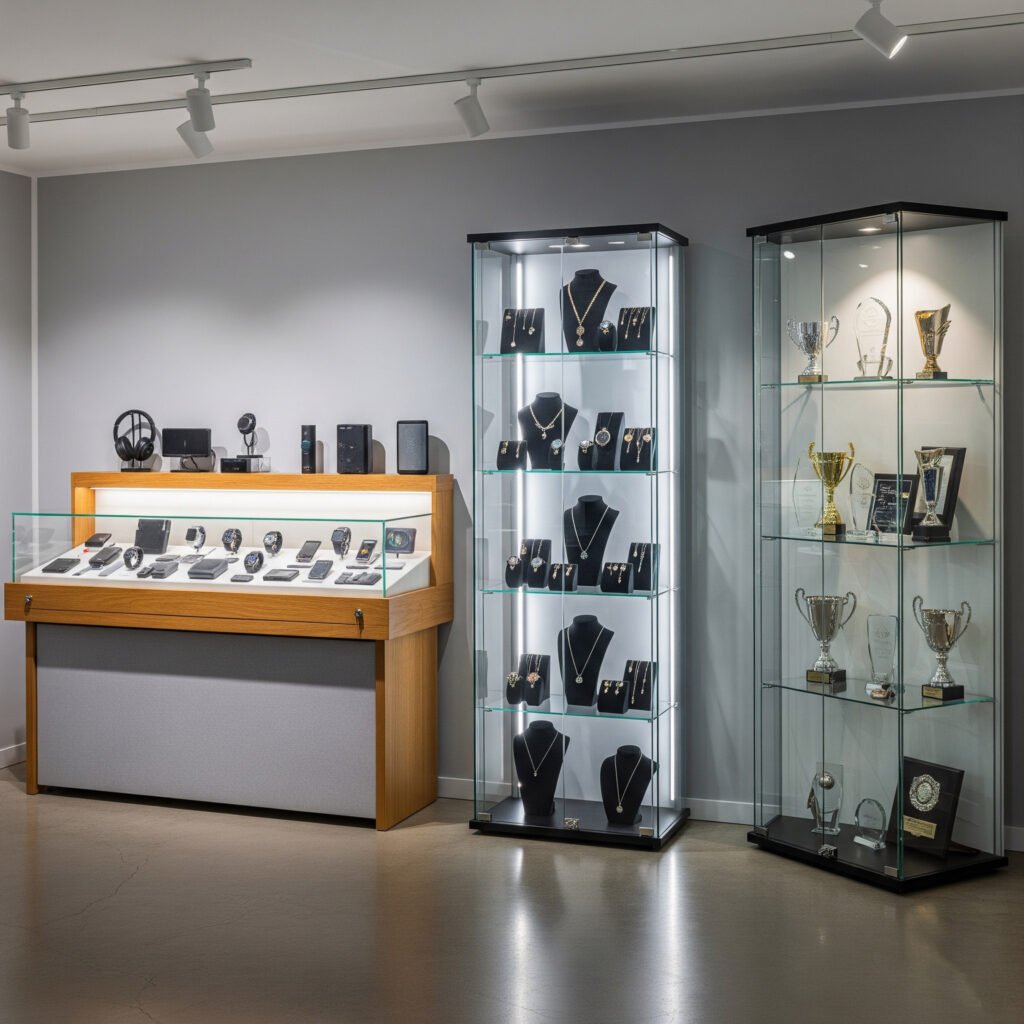
Know Your Product’s Display Requirements
Every product demands a different kind of presentation. Jewelry, for instance, requires secure, well-lit glass enclosures to enhance sparkle and ensure protection. On the other hand, items like vape pens or accessories may benefit from dust-resistant sliding door cases with adjustable shelves. Large items such as trophies or electronics need stronger bases and reinforced shelving support. The type of product directly influences the form and function of the display case.
Display height, number of levels, and visibility angles all must match the product’s shape, weight, and size. Choosing a case without matching it to the item risks a cluttered presentation and poor customer engagement. Understanding this early makes future decisions smoother. Thinking through the product profile helps avoid mismatches and boosts overall store efficiency.
Match Case Type to Store Layout
No two retail spaces are the same, so choosing the right case depends on the available area and customer flow. Floor-standing towers offer great visibility but take up room. Wall-mounted units keep aisles open and create vertical appeal. Island-style counters encourage browsing from multiple angles, making them ideal for boutiques or high-traffic zones. Even unused corners become valuable display zones with L-shaped glass cabinets.
A good layout makes displays feel natural, not forced. Proper planning lets the display case become part of the store’s journey, not an obstacle. Store layout and display case must complement each other to enhance customer movement and product visibility. Buying a case without layout consideration often leads to awkward positioning and wasted space.
Decide Between Custom vs. Standard Cases
Off-the-shelf display cases offer quick solutions. They suit common needs and save time when schedules are tight. However, standard sizes may not fit specific items or store configurations. That’s when custom options add real value. A custom display case fits the exact size, shape, and style needed. It allows for control over finishes, lighting, locks, and shelf height. Many suppliers, including Fairwill Display, provide CAD previews or 3D models before production.
This ensures accuracy and reduces surprises. The choice between custom and standard depends on budget, timeline, and branding needs. For bulk needs with general use, standard works well. But when aiming for a premium look or dealing with limited space, custom is worth the investment. Properly evaluating these factors leads to better buying decisions and long-term satisfaction.
Think About Visibility and Access
Visibility plays a key role in attracting customers. A display case should showcase items clearly from multiple angles, especially at eye level. Lighting can enhance this further, drawing attention to featured products. However, visibility means little without easy access. Staff need to retrieve items quickly and safely. Sliding doors, lift tops, or rear panels all offer different access styles. Lock mechanisms add security, especially in high-value categories.
When both visibility and access align, the display performs better for sales and store efficiency. Good access speeds up customer service, while clear views boost product appeal. Failing to think through these aspects often leads to awkward setups and poor customer interaction. A well-chosen display case integrates both form and function seamlessly.
Consider the Best Materials for Durability
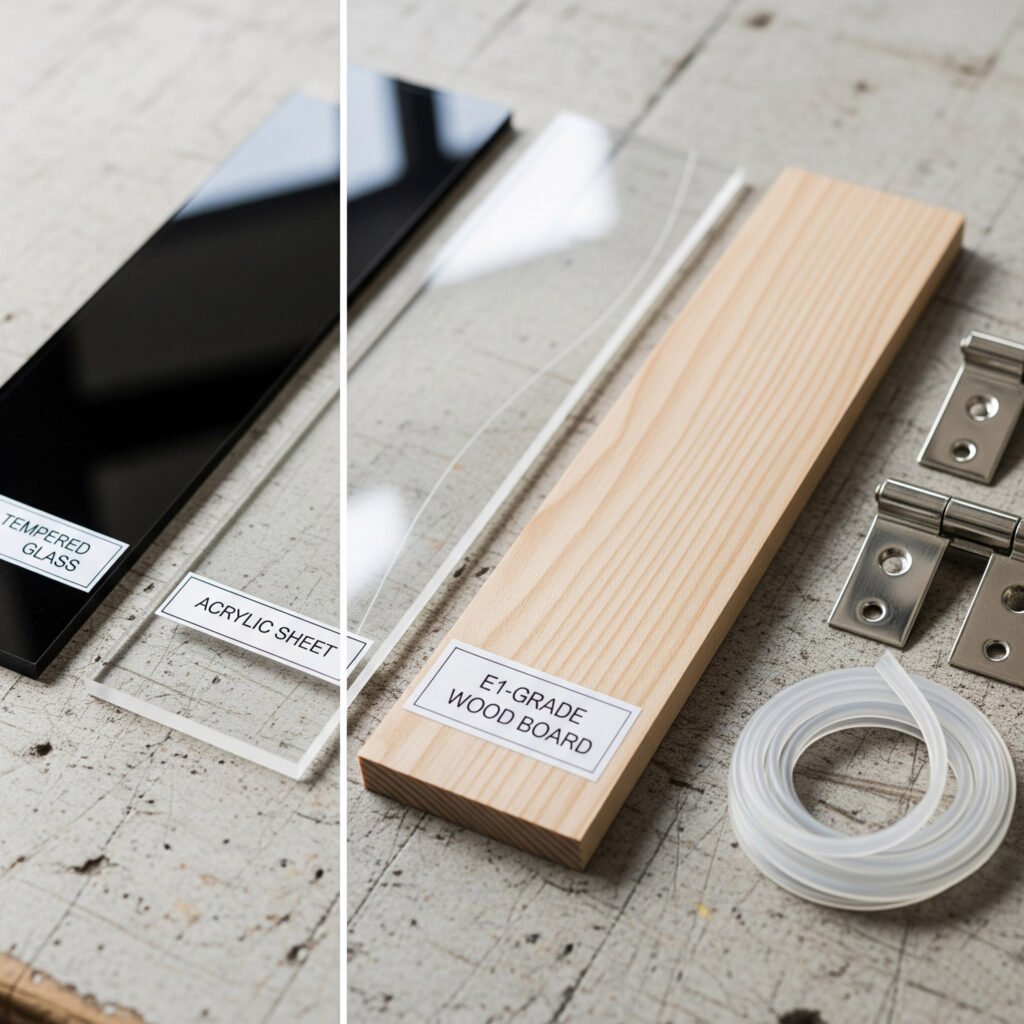
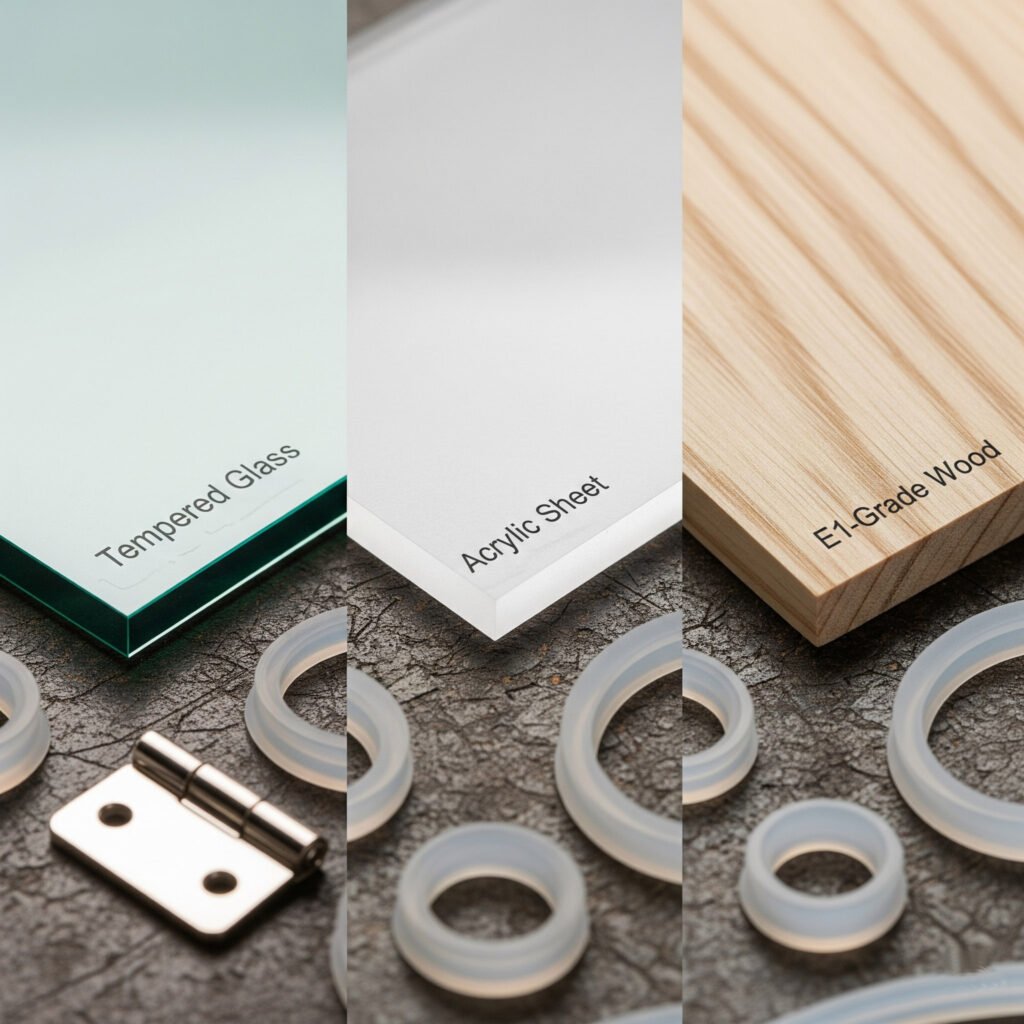
Choose Between Glass and Acrylic
Material selection impacts both the durability and performance of a display case. Glass offers superior scratch resistance, clarity, and strength, especially when using tempered glass. Acrylic, on the other hand, is lightweight, more impact-resistant, and easier to transport. However, it scratches easily and may yellow over time in UV-rich environments.
While both materials have benefits, tempered glass tends to be the better choice for permanent retail fixtures. It adds security, maintains visual quality longer, and feels more premium. In high-end boutiques or trophy displays, glass creates a polished, upscale look. Acrylic fits temporary booths, mobile showcases, or low-cost projects.
Different use cases require different durability expectations. Stores located in humid or dusty environments also need to factor in cleaning frequency and potential long-term wear. In these cases, tempered glass stands up to repeated cleaning without fogging or degrading the surface. Acrylic may show swirls or cloudiness if mishandled.
When asking where to buy a display case, it’s important to ask what kind of material the case uses and how it performs over time. A small upfront cost difference can save on replacements and repairs in the long run.
Look for E1-Grade Wood Boards
Beyond the visible panels, the cabinet body matters too. Poor-quality boards warp, emit odor, or lose their shape. E1-grade wood boards offer a stable, eco-friendly, and long-lasting solution. These boards meet international environmental standards, which is a strong selling point in European markets like Sweden and Germany.
E1-grade boards resist moisture and deformation. This is especially useful in climates with high humidity or fluctuating indoor temperatures. Over time, stable panels ensure doors align properly, shelves stay level, and hardware stays functional. In contrast, substandard boards may cause visible bending or flaking, especially along the edges.
Suppliers like Fairwill Display prioritize E1-grade materials across all their wood-based products. That decision reflects a commitment to both safety and reliability. Many clients overlook board quality and focus only on the glass or external finish. However, a strong interior structure defines how long the display case lasts in actual use.
Durability doesn’t just depend on surface polish. It begins at the core of the construction. E1-grade boards ensure long-term structural integrity, better fastening of hardware, and easier customization for shelving, slots, or LED inserts.
Pay Attention to Hardware and Seals
The internal parts often get less attention, but they matter greatly to overall durability. Hinges, locks, sliders, and rubber seals determine how smooth and secure the display case feels after months or years of use. A poor hinge may sag or become loose, affecting both usability and safety.
High-quality hinges support repeated door openings without wobbles. Soft-close options prevent slamming, which protects the glass panels from micro-damage. Strong locks protect valuable items inside while offering confidence to shop owners. Silicone or rubber seals atthe edges stop dust and moisture from entering, especially for cases in vape shops, bakeries, or collectibles.
Finishing hardware isn’t just about user experience—it protects the case from internal damage. Loose parts lead to rattling shelves or cracked joints. A secure frame and tight seal maintain both the look and function of the case.
Display case manufacturers who use premium hardware and seals demonstrate engineering excellence. Fairwill Display includes silicone-lined edges and reinforced fasteners in many designs. That focus on durability makes their products ideal for long-term retail usage.
Compare Wholesale vs. Retail Channels
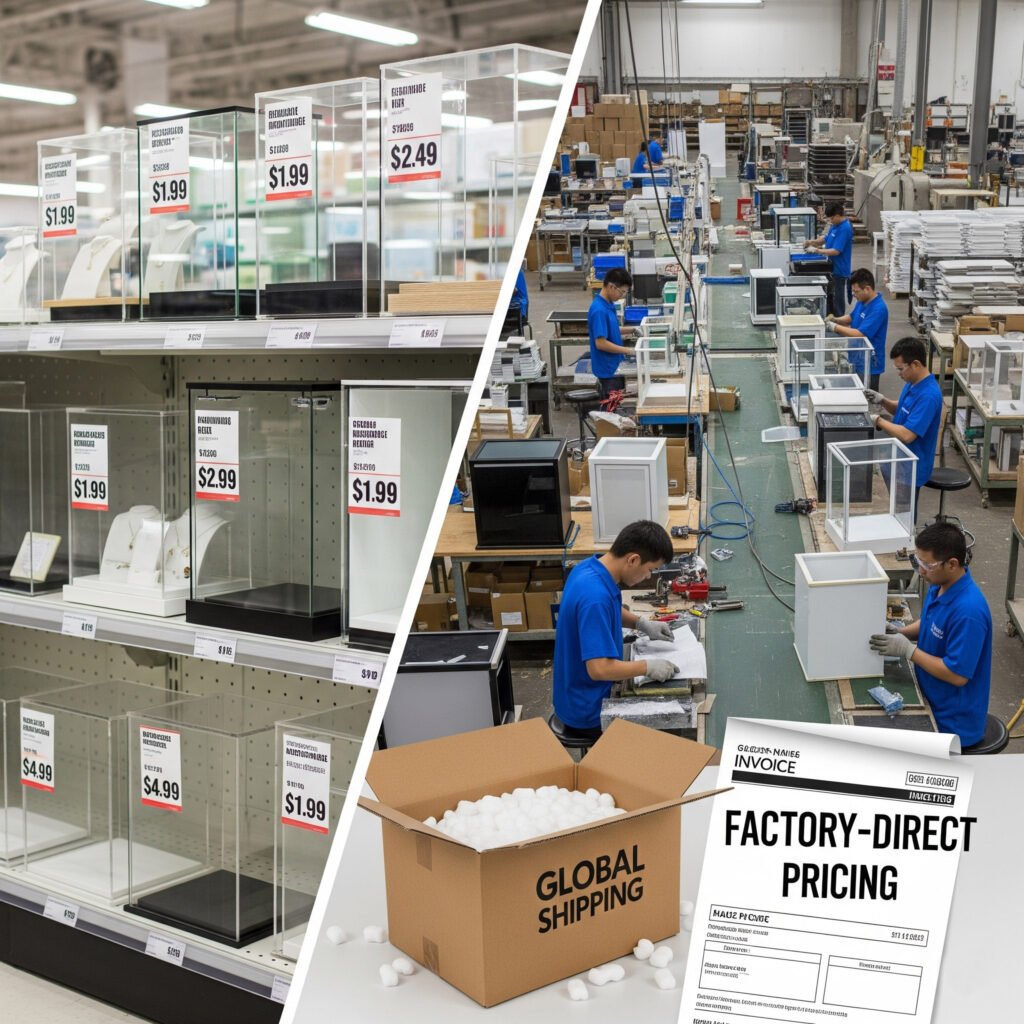
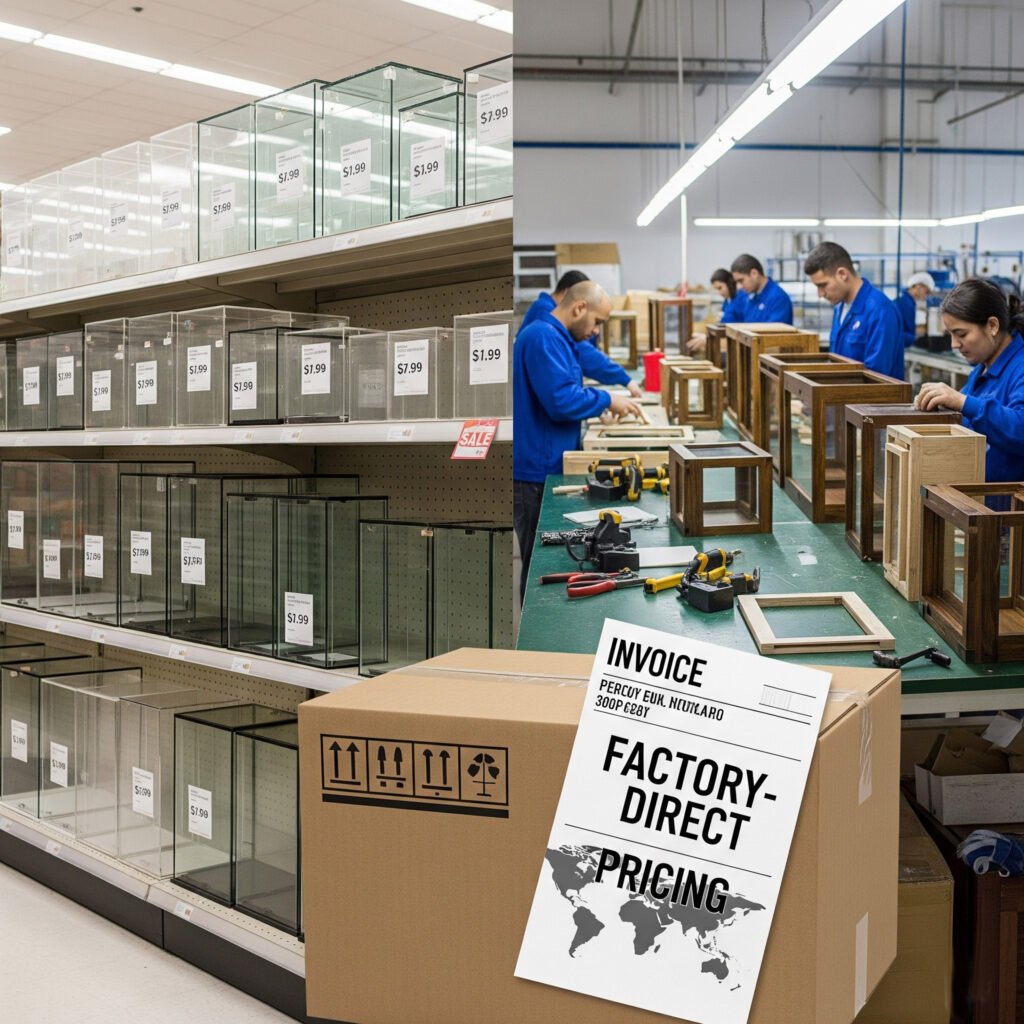
Buying from Local Retail Stores
Local retail stores offer convenience. These shops provide physical access to display cases, which makes it easier to inspect items firsthand. Buyers can feel the materials, test hinges, and evaluate finishes before purchasing. This instant access helps in urgent situations where waiting for shipping is not an option. Moreover, many retail stores offer basic after-sales service, such as exchanges or repairs. This local support adds value for buyers with smaller needs or limited purchasing experience.
However, retail shops typically carry standard models with fixed specifications. Customization is rare or non-existent. That limits the buyer’s ability to match specific store layouts or branding preferences. Pricing also tends to be higher, as retailers add their margins on top of the manufacturer’s cost. This makes retail ideal for one-time buyers or emergency replacements—but less practical for bulk orders or custom builds. For buyers focused on cost-efficiency, this channel may feel restrictive.
Despite these drawbacks, retail channels serve a valuable role in the buying process. They offer quick access, limited risk, and product visibility. But for serious B2B buyers or international customers, local retail is only a temporary solution.
Working with Distributors or Agents
Distributors and sales agents act as middlemen. They bridge the gap between manufacturers and local buyers. Often, they carry multiple product lines, including display cases, shelves, and fixtures. This variety can benefit buyers seeking mixed orders without juggling multiple suppliers. Additionally, agents may speak the local language and understand regional regulations, easing the buying process for international customers.
Another benefit is logistical simplicity. Distributors may hold stock in-country, reducing shipping delays. They also often offer local warranties or installation services, which makes ongoing support easier. Buyers can avoid customs paperwork, overseas bank transfers, and language barriers. This added convenience, however, comes at a cost. Distributors include their margins in the final price, which can be significant.
Distributors also limit customization. They stock what sells fastest, not what fits every client’s vision. Requests for special dimensions, E1 board upgrades, or unique finishes often face delays or are denied altogether. For buyers who prioritize control, this can be frustrating. Still, working with distributors offers clear advantages in communication, support, and speed—especially for those less experienced with international sourcing.
Sourcing Directly from Manufacturers
Direct sourcing delivers the highest value. Manufacturers like Fairwill Display offer factory pricing, full customization, and production transparency. Buyers can request exact dimensions, select materials, and adjust features before production begins. This flexibility ensures a perfect match for any retail concept, whether it’s a jewelry store, smoke shop, or boutique.
One major advantage is cost savings. Cutting out middlemen removes extra markup. Buyers get access to bulk pricing, volume discounts, and transparent breakdowns. For businesses managing tight budgets, this pricing structure makes expansion affordable. It also opens opportunities for repeat ordering with consistent specs and finishes.
Shipping might seem complex at first, but experienced exporters simplify the process. Fairwill Display, for example, provides all documentation and uses protective packaging for international freight. They also offer video updates during production and testing, giving buyers confidence in quality before shipping begins. Reliable communication via email or WhatsApp further reduces concerns.
Of course, direct sourcing requires more engagement. Buyers must share detailed specs and ask questions early. But the payoff is significant. They get a tailored product, built with precision and delivered at the best possible price. For B2B buyers seeking long-term growth and branding consistency, going factory-direct is the smartest path.
Why Fairwill Display
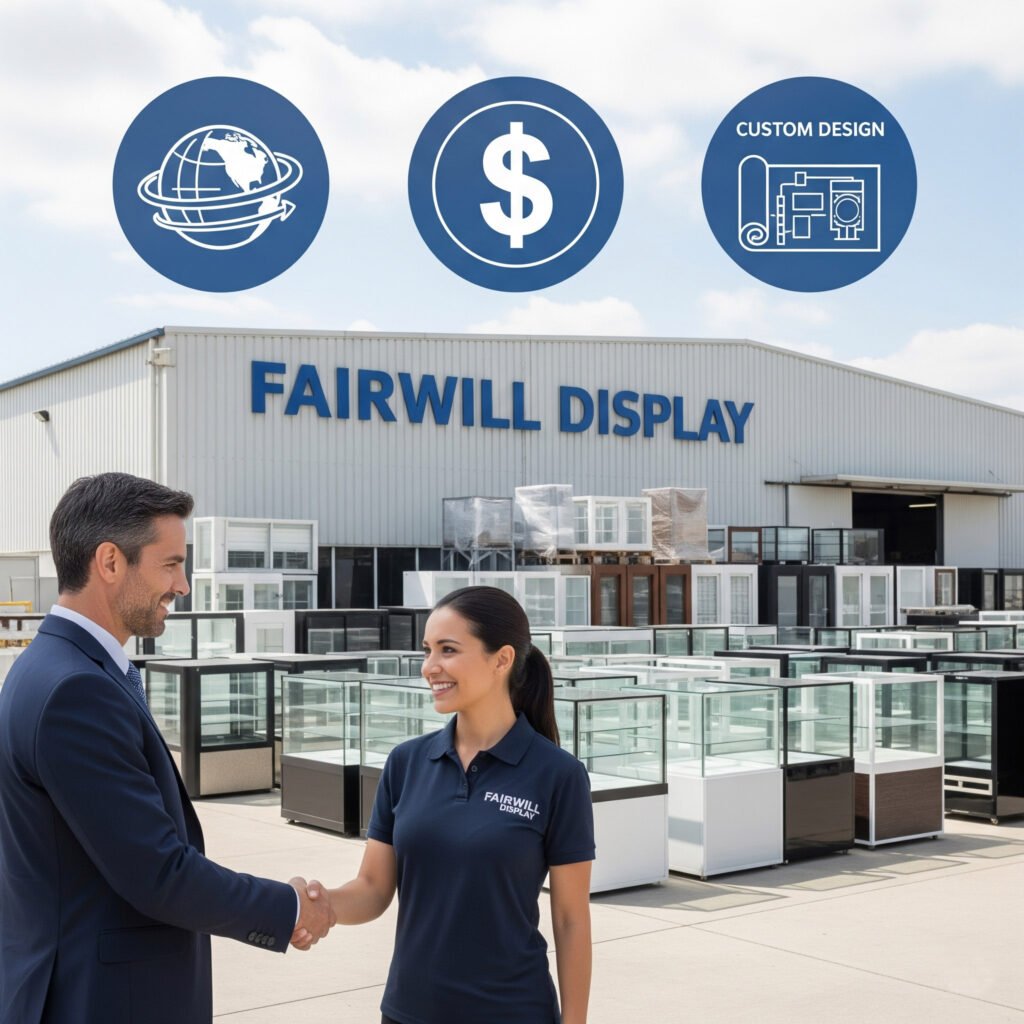
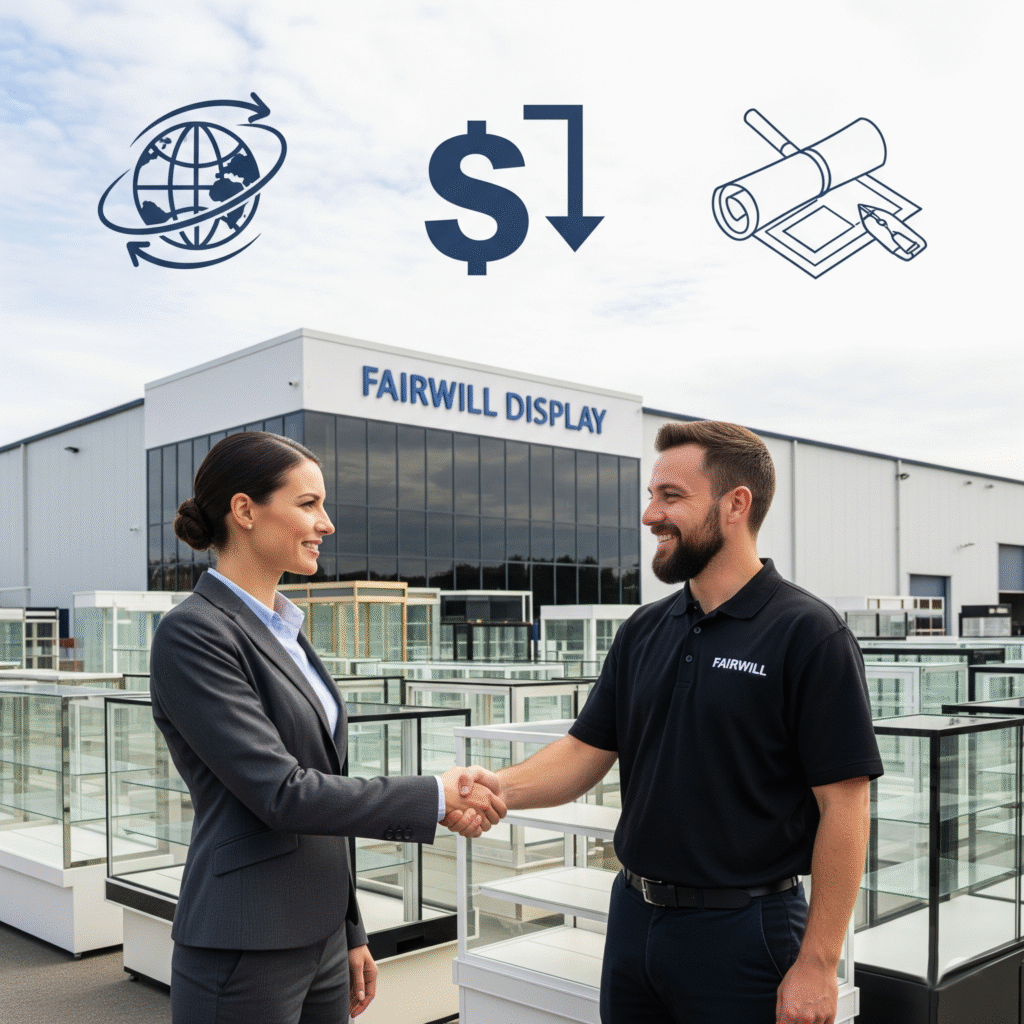
As someone who has worked with multiple suppliers, I can confidently say Fairwill Display stands out. The value, service, and product quality I receive go far beyond what I expected. Here’s why working with them makes such a big difference.
Factory-Direct Pricing Without the Middlemen
Fairwill owns its own factory. That means the price I pay is factory-direct. There’s no markup from agents, no distributor fees, and no unnecessary costs.
Each time I place an order, I know the quote is clear and fair. I’ve compared prices with local suppliers in Sweden and online vendors. Fairwill always comes out more affordable—especially for larger orders.
More importantly, they don’t cut corners. I still get E1-grade boards, tempered glass, and premium components. Low cost doesn’t mean low quality here. That balance gives me real peace of mind as a buyer.
Reliable Quality and Transparent Production
Before working with Fairwill, I struggled with inconsistency. Some suppliers sent scratched glass, crooked hinges, or bad packaging. That changed with Fairwill.
They show me their QC steps in detail. I’ve received photos and videos from their workshop during production. That transparency helps me trust what I’m getting.
Their quality checks cover everything—edge polishing, glass clarity, hinge alignment, and packaging strength. I rarely find issues. And if something ever goes wrong, they fix it quickly.
For me, knowing that quality won’t vary from order to order is a game-changer. I no longer worry about my brand reputation or reordering delays.
Customization Support That Actually Listens
One reason I keep returning to Fairwill is their flexibility. Most suppliers offer fixed designs. Fairwill gives me complete control over dimensions, shelving, colors, and finishes.
I once needed a unique glass counter for a boutique client. I shared sketches and measurements. Their engineers replied within 24 hours with CAD drawings. They even adjusted the handle type after I changed my mind.
Fairwill doesn’t just say yes to custom work—they guide me through it. Their advice on glass thickness, seal type, and door structure saved me from making costly mistakes. That expert input is worth its weight in gold.
Fast and Friendly Communication
In global trade, communication matters. Time zones, language, and delays make things tricky. But Fairwill is fast and friendly.
Every time I message their team, they reply quickly and clearly. Whether it’s a price request, shipping update, or technical question, I get answers without chasing.
They’re also honest. If something will take extra time or cost more, they tell me upfront. That clarity saves me stress and lets me plan ahead.
Having a team that treats me like a partner—not just a buyer—makes working with Fairwill enjoyable and efficient.
Packaging, Shipping, and Global Service
Fairwill ships globally. I’ve received shipments in Sweden without damage or customs issues. Their wooden crates and foam padding work.
They handle all paperwork and labeling. I don’t need to chase down shipping agents or worry about incorrect HS codes.
They even provide tracking and delivery updates so I can coordinate installation at the retail site. That level of support keeps my projects on schedule and my clients happy.
Ready to Get a Quote
If you’re tired of overpriced middlemen or inconsistent suppliers, try Fairwill Display. You’ll get expert guidance, consistent quality, and unbeatable value. Whether you need 10 units or 500, they make the process simple.
Send an inquiry today and experience what real factory-direct service feels like. Fairwill is more than a vendor—they’re your trusted display fixture partner.
